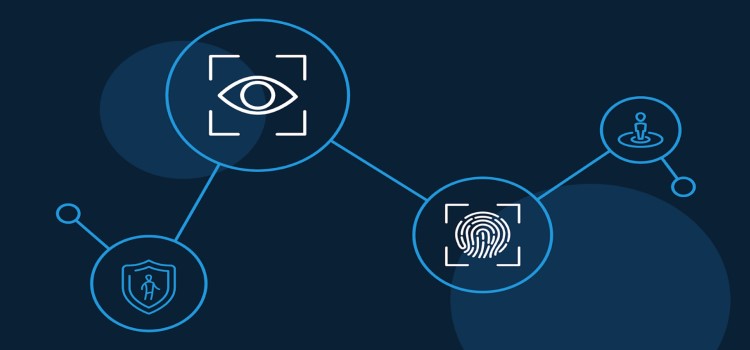
Passwordless Authentication Market by Component (Hardware and Software), by Type (Fingerprint Recognition, Palm Print Recognition, Iris Recognition, Face Recognition, Voice Analysis, and Smart Card), by Authentication Type (Single-factor Authentication, and Multi-factor Authentication), by Motility (Fixed and Mobile), by End-user Industry (BFSI, Logistics, Public Sector, Aerospace & Defense, Healthcare, Retail, and Others) – Global Opportunity Analysis and Industry Forecast, 2024–2030
Industry: ICT & Media | Publish Date: 08-Apr-2024 | No of Pages: 403 | No. of Tables: 286 | No. of Figures: 251 | Format: PDF | Report Code : N/A
Market Overview
The Passwordless Authentication Market size was valued at USD 16.66 billion in 2023 and is predicted to reach USD 50.91 billion by 2030, with a CAGR of 17.3% from 2024 to 2030.
The Passwordless Authentication Market refers to the sector of the technology industry focused on providing authentication solutions that eliminate the need for traditional passwords. Passwordless authentication methods rely factors, such as biometrics hardware tokens, mobile devices, cryptographic keys, or contextual information, to verify a user's identity and grant access to systems, applications, or digital resources.
The market offers a range of authentication methods tailored to different use cases, industries, and organizational requirements. These solutions not only enhance security but also improve user experience, reduce operational costs associated with password management, and support compliance with data protection regulations.
Technological Advancements in Authentication Technologies Boost Market Growth
The advancements in biometrics and authentication technologies have catalyzed the evolution of passwordless authentication, which offers heightened reliability and security. Innovations in biometric technologies, including fingerprint recognition, facial recognition, and iris scanning, have significantly enhanced the accuracy and effectiveness of authentication processes.
These technologies leverage unique biological traits to verify user identities, mitigating the risk of unauthorized access associated with traditional password-based methods. Furthermore, continuous improvements in hardware security tokens and cryptographic techniques bolster the security posture of passwordless authentication solutions. Hardware tokens provide physical devices that generate dynamic authentication codes or store cryptographic keys, adding an additional layer of protection against unauthorized access attempts.
Likewise, advancements in cryptographic techniques ensure the confidentiality, integrity, and authenticity of authentication credentials, further fortifying the security of passwordless authentication systems. As these technologies continue to evolve and become more accessible, the growth trajectory of passwordless authentication solutions is propelled forward, offering organizations a more secure and reliable means of identity verification in an increasingly digital landscape.
Increasing Cases of Cyber-Attacks Across Worldwide
The escalating frequency of cyber-attacks globally have propelled the growth of the passwordless authentication market. High-profile data breaches underscore the urgent need for more resilient authentication solutions. Passwordless authentication addresses this challenge by eliminating reliance on easily compromised passwords.
Instead, it leverages advanced techniques such as biometrics, token-based authentication, or cryptographic keys to verify user identities securely. This heightened security is particularly crucial in industries subject to stringent regulatory compliance requirements, where data protection is paramount. As a result, the Passwordless Authentication Market continues to expand rapidly, driven by the imperative for robust cybersecurity measures in an increasingly digital world.
High Initial Cost Restraint the Market Growth
The high initial cost of implementing passwordless authentication solutions presents a substantial barrier to market growth. Organizations requiring passwordless authentication solutions need to invest in new infrastructure, such as hardware and software, to support technologies such as biometrics or cryptographic keys.
Additionally, customization and integration with existing systems entail significant development and integration costs. These expenses create entry barriers for new market players, limiting competition and innovation within the industry. As a result, organizations may be hesitant to adopt passwordless authentication solutions, despite their benefits, due to the prohibitive costs involved.
Introduction of Mobile Device Authentication Creates Future Opportunity
The introduction of mobile device authentication represents a significant advancement in authentication methods, paving the way for a passwordless future. By utilizing features such as fingerprint and facial recognition, along with emerging technologies such as AI, authentication becomes more secure and user-friendly.
This trend fuels a growing demand for passwordless authentication, enhancing user experiences while reducing risks. Leveraging mobile devices as trusted authentication factors opens avenues for innovation and market growth. In a groundbreaking announcement, Zumigo, Inc., a leader in mobile identity authentication, has introduced an industry-first functionality in the Zumigo Assure Authentication product.
This innovation enables the seamless transfer of verified trust from a user's mobile phone to various other devices, including desktops, laptops, and tablets.
By leveraging the versatility and ubiquity of QR codes, Zumigo Assure Authentication sets a new standard for passwordless authentication solutions, providing users with unparalleled convenience and security in their online interactions.
North America dominates the Passwordless Authentication Market
The presence of key market players such as Beyond Identity, Inc., Stytch, Inc., Trusona, Inc., and Wink Passwordless, Inc., underscores the competitive landscape and innovation within the passwordless authentication market. These companies contribute significantly to the advancement and adoption of passwordless authentication technologies, driving the market growth with their innovative solutions and services.
For instance, in August 2023, Beyond Identity, a leading provider of passwordless, phishing-resistant Multi-Factor Authentication (MFA) solutions, introduced the Passkey Journey. This new tool, which is offered free and complies with GDPR regulations, is aimed at assisting development and user experience (UX) teams in understanding, planning, and optimizing various end-user authentication experiences.
In addition, the escalating threat landscape of cyber-attacks, including phishing, credential stuffing, and data breaches, has exposed the vulnerabilities inherent in traditional password-based authentication methods. Consequently, organizations in North America are gravitating towards the Passwordless Authentication market, seeking advanced solutions to fortify their security posture and mitigate the risks associated with unauthorized access and data breaches.
For instance, in September 2022, Hackers targeted the Mexican Defense Ministry and accessed six terabytes of data, including internal communications and criminal data. Thus, the rise in incidences of cyberattacks in Mexico increases demand for safe and secure cyber solutions, boosting the growth of market.
Asia-Pacific is Expected to Show Steady Growth in the Passwordless Authentication Market
Asia-Pacific is expected to witness an increased demand for passwordless authentication solutions, in logistics industry. The increasing reliance on digital technologies and data security companies embrace digital transformation to streamline operations and enhance efficiency, the need to protect sensitive supply chain data from cyber threats becomes paramount.
Passwordless Authentication offers a secure and streamlined authentication method, eliminating the vulnerabilities associated with traditional passwords while enabling seamless access for a mobile workforce. By adopting Passwordless Authentication, logistics firms can bolster security, improve operational efficiency, and ensure compliance with data protection regulations, thus supporting the industry's continued growth and innovation in the region.
China has the largest logistics market in the world, based on logistics opportunities and business fundamentals. Much of this is attributed to the country’s growing logistics infrastructure; an extensive network of warehouses, and storage facilities paired with advanced IT services. Over the last decade, the Chinese government has substantially invested in the country's logistics industry, amounting to U. S. dollars 29 billion in 2021.
Additionally, in July 2022, China initiated a campaign aimed at bolstering cybersecurity and combating unlawful cyber activities nationwide. This initiative underscores the growing importance of secure digital environments, aligning with the objectives of the passwordless authentication market.
The campaign entails implementing strategies to enhance cyberspace security, such as identifying and addressing online disruptions, and fostering a cleaner internet ecosystem across both public and private sectors. This emphasis on cybersecurity reinforces the significance of passwordless authentication solutions in mitigating cyber threats and safeguarding digital assets.
Competitive Landscape
Several market players operating in the passwordless authentication market include Okta, Inc., Yubico AB, 1Kosmos, Inc., Beyond Identity, Inc., Stytch, Inc., Trusona, Inc., Wink Passwordless, Inc., Getidee, Inc., Thales and Axiad, Inc. and others.
For instance, in October 2023, Thales introduced the SafeNet IDPrime FIDO Bio Smart Card, a contactless smart card enabling users to securely access devices, applications, and cloud services through fingerprint authentication, eliminating the need for passwords.
Also in February 2022, Wink partnered with Brainvire to utilize Brainvire’s distinctive digital transformation agency approach in implementing Wink’s biometric authentication, payment, and checkout solutions across prominent e-commerce platforms and merchant networks.
Through this partnership, secure biometric payment and checkout plugins will be integrated, ensuring widespread availability and accessibility on major e-commerce platforms. This collaboration marks the beginning of a transformative era in online payments, promising fraud-free transactions for merchants operating in the digital space.
Moreover, in May 2022, Trusona, launched Trusona Authentication Cloud, the industry's first app-less passwordless MFA solution designed to improve business growth and profitability with a "tap and go" sign-in experience. It delivers a simple sign-in experience that is multi-factor, does not require an app and delivers rapid time-to-value at low cost when deploying FIDO and WebAuthn.
Key Market Segment
By Component
-
Hardware
-
Software
By Type
-
Fingerprint Recognition
-
Palm Print Recognition
-
Iris Recognition
-
Face Recognition
-
Voice Analysis
-
Smart Card
By Authentication Type
-
Single-factor Authentication
-
Multi-factor Authentication
By Motility
-
Fixed
-
Mobile
By End User
-
BFSI
-
Logistics
-
Public Sector
-
Aerospace & Defense
-
Healthcare
-
Retail
-
Others
By Region
-
North America
-
The U.S.
-
Canada
-
Mexico
-
-
Europe
-
The UK
-
Germany
-
France
-
Spain
-
Italy
-
Netherlands
-
Rest of Europe
-
-
Asia-Pacific
-
China
-
Japan
-
India
-
Australia
-
South Korea
-
Taiwan
-
Vietnam
-
Rest of Asia-Pacific
-
-
Rest of the World (RoW)
-
Latin America
-
Middle East
-
Africa
-
REPORT SCOPE AND SEGMENTATION:
|
Parameters |
Details |
|
Market Size in 2023 |
USD 16.66 Billion |
|
Revenue Forecast in 2030 |
USD 50.91 Billion |
|
Growth Rate |
CAGR of 17.3% from 2024 to 2030 |
|
Analysis Period |
2023–2030 |
|
Base Year Considered |
2023 |
|
Forecast Period |
2024–2030 |
|
Market Size Estimation |
Billion (USD) |
|
Growth Factors |
|
|
Countries Covered |
18 |
|
Companies Profiled |
10 |
|
Market Share |
Available for 10 companies |
|
Customization Scope |
Free customization (equivalent up to 80 working hours of analysts) after purchase. Addition or alteration to country, regional, and segment scope. |
|
Pricing and Purchase Options |
Avail customized purchase options to meet your exact research needs. |
KEY PLAYERS
-
Okta Inc.
-
Yubico AB
-
1Kosmos Inc.
-
Beyond Identity, Inc.
-
Stytch Inc.
-
Trusona Inc.
-
Wink Passwordless Inc.
-
Getidee Inc.
-
Thales
-
Axiad Inc.




 Speak to Our Analyst
Speak to Our Analyst


































